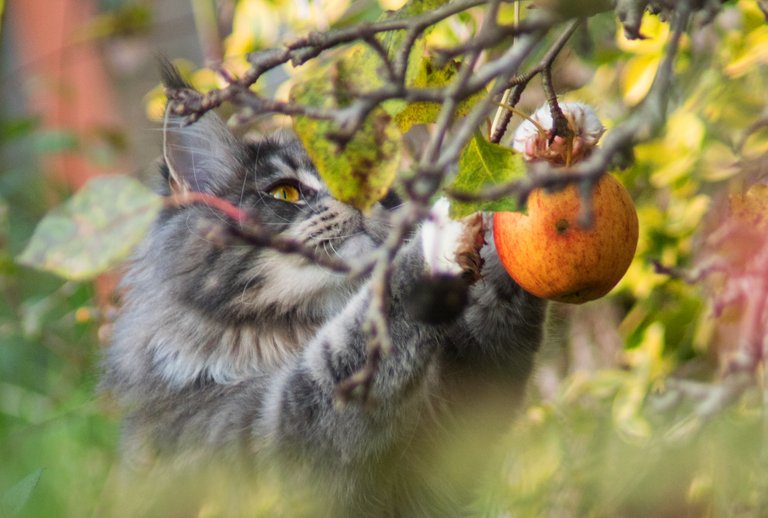Why That Orange Doesn't Ripen On Your Table
I always complained about mangoes and some other fruits that were left on the table to ripen. She would go to the extent of telling which mango was ripened with ash, air-tight sack, and so on. I guess she had kept a lot of fruits to ripen while growing up so she understood the trick fruit sellers and vendors used to get their fruits ripe but maybe not the science behind it. Growing up, I have learned that some fruits will not taste nice when left on the table or kept somewhere aside from their original location.
I kept Oranges, cantaloupes, and peaches on the table along with pineapples. Every other fruit on the table tasted excellent except the pineapple and it left me worried as to why some fruits will ripen on the table and some would get spoilt on the table. So why does this happen?
https://s3.animalia.bio/animals/photos/full/original/1438px-bombycilla-garrulus-cynffon-sidanjpg.webp
image - animalia
Plants rely on animals and other factors to pollinate and transport their seeds from one place to another. This is usually done unceremoniously and thanks to natural selection, plants have been able to adopt a whole system to ensure that animals help them in doing these processes. To prevent animals from picking up their fruits early so as not to waste them, plants developed mechanisms of fruiting and putting their seed around, inside, on top, or below the fruits with other defense mechanisms such as hardening of the fruit, production of acids and chemicals to prevent mulching on them too early and having camouflages to deceive them that it isn't fruits.
As the fruits mature, their skin thins, their bitter and sharp taste begins to sweeten and the flesh begins to soften. Once the fruit ripens, it begins to attract seed dispatchers who will do the good work of dispatching them far and wide. While fruits ripen, not all of them ripen the same way. Fruits like Oranges and pineapples get the sweet taste from hormones in the plant after they have already been formed. During the ripening stage of these fruits, once they are plucked off, the ripening stops and that will be as tasty as it is ever going to get, any other thing is the fruit getting bad.
Fruits like bananas, plantain, and apples do not need to stay connected to their tree to get tastier and continue to ripen. The fruits already have starch that can be converted to sweet sugar in them so even when they are plugged out, they continue to ripen and sweeten thanks to Ethylene which is produced by the fruit. Why do we have fruits that ripen these ways?
There are a few hypotheses around this with one being that trees with big fruits that need to be transported by large animals that cannot get on the tree developed the ability to ripen on the floor so the animals can pick them up while small fruits that can be picked by birds need to ripen on the tree so the dispatchers will not take them away before they ripen.
YOU CAN STUDY FURTHER
https://www.sciencedirect.com/topics/biochemistry-genetics-and-molecular-biology/fruit-ripening
https://www.thespruceeats.com/why-some-fruits-ripen-once-picked-and
https://felixinstruments.com/blog/how-the-fruit-ripening-process-affects-freshness-and
https://www.thespruceeats.com/why-some-fruits-ripen-once-picked-and-others-do-not
https://www.fridgefriend.com/blogs/news/what-is-ethylene-gas-information-on-ethylene
https://postharvest.ucdavis.edu/ask-produce-docs/why-do-some-fruit-ripen-only-tree
https://pmc.ncbi.nlm.nih.gov/articles/PMC6787828/
https://royalsocietypublishing.org/doi/10.1098/rsbl.2021.0352

Thanks for your contribution to the STEMsocial community. Feel free to join us on discord to get to know the rest of us!
Please consider delegating to the @stemsocial account (85% of the curation rewards are returned).
Consider setting @stemsocial as a beneficiary of this post's rewards if you would like to support the community and contribute to its mission of promoting science and education on Hive.